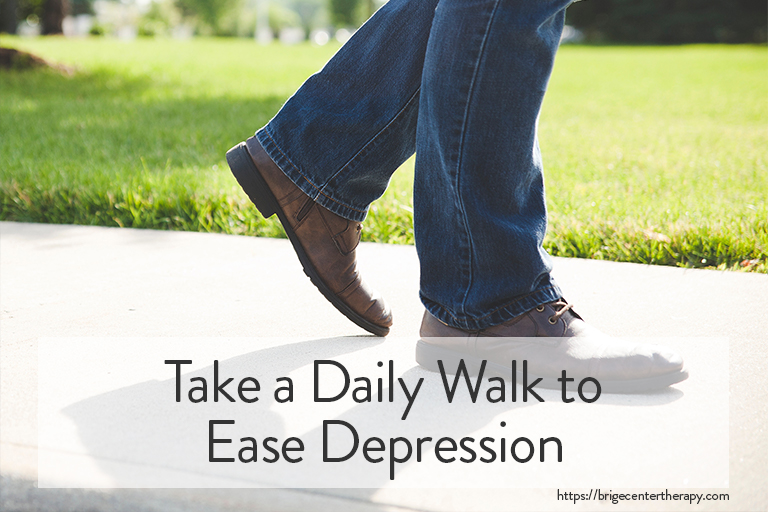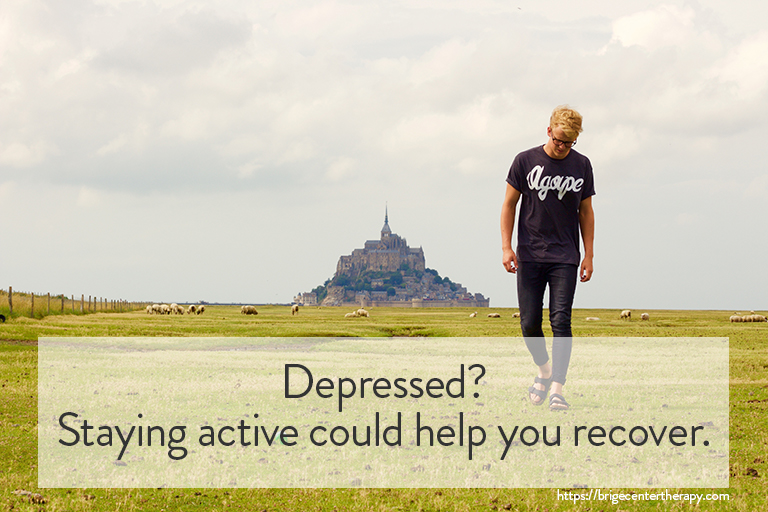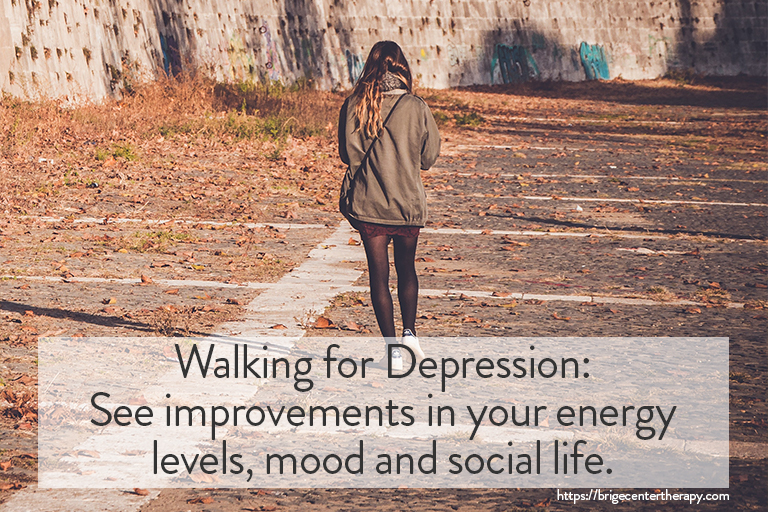
According to a study published in the American Journal of Preventive Medicine more physical activity and specifically walking was shown to dramatically improve the quality of life of participants who reported symptoms of depression.
Women who averaged 200 minutes of walking every week had more energy, socialized more, felt better emotionally, and weren’t as limited by their depression when researchers followed up after three years.
You can get there from here.
It improves self-perception and self-esteem, mood and sleep quality, and it reduces stress, anxiety and fatigue. Physically active people have up to a 30% reduced risk of becoming depressed, and staying active helps those who are depressed recover.

Another study, published in the August, 2011, issue of the Journal of Psychiatric Research provides data that exercise can provide benefits when medication alone does not. Specifically, researchers in Portugal examined the effects of exercise-in this case programmed episodes of walking for 30-45 minutes five times per week-on depressed adults who failed to respond to two previous trials of antidepressant medication. In the study, all patients remained on their antidepressant medication, and two-thirds of the sample received the program of regular (walking) exercise.
The results were dramatic. Of those patients who received only medication, no average changes in depression mood ratings were seen over the next 12 weeks. In contrast, clear improvement was seen in those who exercised, with 10 of the 19 patients who exercised showing a response or full remission in symptoms during this time.

Walk regularly. It doesn’t matter how you approach walking, as long as you do it. You will see improvements in your energy levels, mood and social life. You don’t even need a gym membership. It’s completely free!
REFERENCES
(1) Otto, M; Smits, J. (2011, July 26). Outwalking Depression. Retrieved from
(2) Neumann, J. (2015). Regular Walking Can Help Ease Depression. Retrieved from https://www.scientificamerican.com/article/regular-walking-can-help-ease-depression/
(3) Heesh, KC. (2015, March). Physical Activity, Walking, and Quality of Life in Women with Depressive Symptoms. Retrieved from https://www.ajpmonline.org/article/S0749-3797(14)00567-4/fulltext
(4) Pereira, JM. (2011, August). Moderate exercise improves depression parameters in treatment-resistant patients with major depressive disorder. Retrieved from https://www.sciencedirect.com/science/article/pii/S0022395611000367
Need Help? We Can Help.
This post was written by Lani Gouws on behalf of The Bridge Therapy Center. If you have any questions or require more information, please contact Lani here: lani@bridgecentertherapy.com
